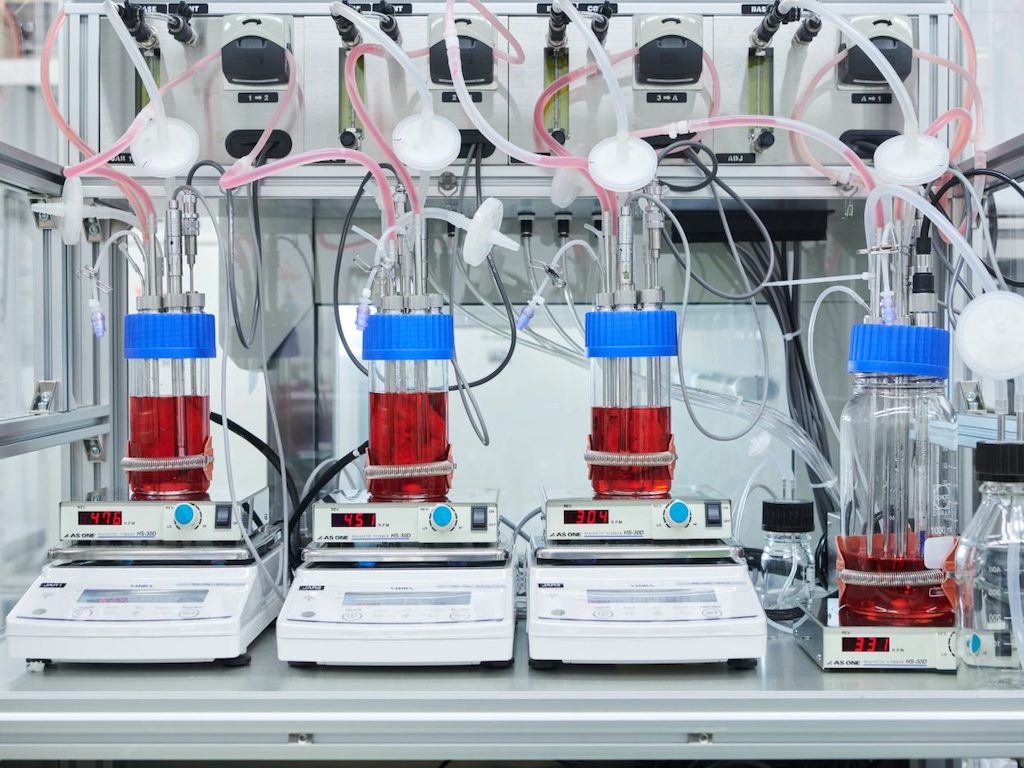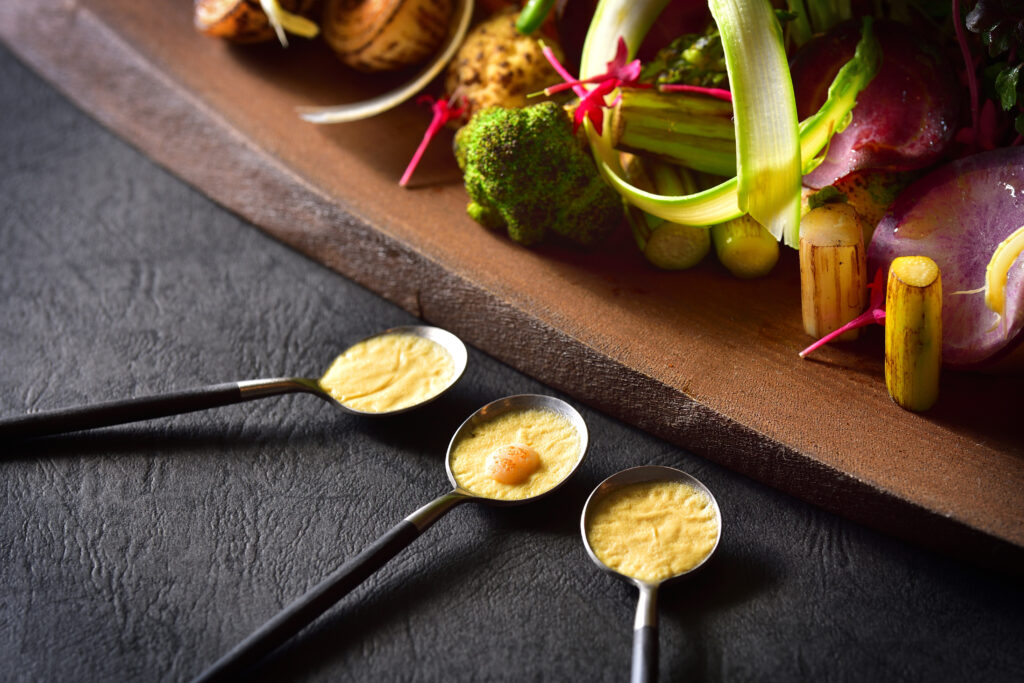
The government of Japan has awarded grants worth $19.6M to two alternative protein startups, just after a new report shed light on the country’s consumer preferences around meat alternatives.
The Japanese government has included two alternative protein companies in the latest round of its Small and Medium-Sized Enterprises Innovation Promotion Fund Project, run by the Ministry of Agriculture, Forestry and Fisheries.
Awarding grants worth ¥26B ($209M) to 25 projects, the two alt-protein startups part of the list are Umami United and IntegriCulture, which received funds worth ¥2.8B ($19.6M).
Umami United bags $6.5M for global expansion

Umami United, which closed a $1.64M pre-Series A funding round earlier this year, makes plant-based egg products using konjac flour, bittern and wood-eared mushrooms. The startup, which is gearing up to launch in the US and Europe, received ¥917M ($6.5M) as part of the government grant.
The Tokyo-based startup says it will use the funds to improve the functionality of its vegan eggs, and accelerate its full-scale entry into the North American market. It has stated its aim to become a global food tech representative of Japan, “fostering a world where individuals with various backgrounds, including vegans and food allergies, can come together and share a meal at one table”.
Speaking to Green Queen after the pre-Series A round in August, Umami United CEO Hiroto Yamazaki said the brand was looking to enter the UK and Germany first in Europe: “We are in the midst of discussions with big players in both the UK and Germany to incorporate our egg replacer products into their plant-based food products. They have tested our products and initial responses are positive.”
He added: “As for the US, we are also in late-stage talks with universities in Southern California to incorporate our products in their vegan menus.” He confirmed that some “big plant-based meat players” are testing Umami United’s clean products to be used as a binding agent. Its product range includes a vegan egg powder, flavouring powder and pudding mix.
IntegriCulture gets $13.1M for demonstration of cell ag production system

IntegriCulture, meanwhile, received an even larger investment of ¥1.87B ($13.1M). It has created a cellular agriculture infrastructure platform called CulNet, through which it develops affordable growth mediums and other solutions for cultivated protein. The startup plans to make these developments open-source to accelerate widespread progress and commercialisation.
In early 2022, it raised $7M in a Series A round to take its total funding to $16.4M. The company has previously been awarded a $2.2M government grant to construct a specialist production facility, and has been working with the Japan Aerospace Exploration Agency and the Tokyo Women’s Medical University on a project involving cellular agriculture and cultivated meat production in space.
The company claims to have grown serum-free cultivated chicken and duck meat at a fraction of the cost compared to using animal-based growth factors. It says the CulNet platform can drop growth factor costs from the current price of over $200,000 per kg of meat to under $3 by 2025, and under a dollar soon after that.
Plus, it has debuted a cell-based egg-derived skincare ingredient, Cellament, which is being used by the Japanese skincare brand Essencebase in its L’Oeuf line. “Cell-culture technology doesn’t just change how we source traditionally animal-derived ingredients, it also enables us to unlock nutritional and functional power that was previously inaccessible,” IntegriCulture CEO Yuki Hanyu has previously said.
What Japan’s consumers want from alt-protein

The agriculture ministry’s grant comes soon after a Food Frontier report into Asia’s alt-protein sector. It revealed that 91% of Japan’s citizens are regular meat-eaters, while 9% eat plant-based meat. For these consumers, flavour, ease of cooking and high protein content are the most important purchase drivers. As for the biggest barriers, taste and overprocessing are the main issues.
In terms of cultivated meat, 20% of people surveyed have heard of the term, but only 2% indicated that they’d definitely purchase it, with 10% saying they are likely to do so once it becomes available. Here, unfamiliarity with these novel foods is the key barrier, followed by a perceived unnaturalness and taste concerns.
While the value of Japan’s alt-meat market is among the highest in Asia (at $247.5M in 2022), it has the slowest projected yearly growth rate, expanding by only 9% annually until 2027. “We are seeing more and more Japanese consumers with changing tastes and preferences and heightened health awareness, and this has also motivated these local food manufacturers to prioritise and launch plant-based food,” Yamazaki told Green Queen.
Additionally, the Japan Association for Cellular Agriculture is part of the recently launched APAC Regulatory Coordination Forum, which aims to facilitate cross-border dialogue between cell-cultured food producers, industry associations and think tanks, and government agencies and regulators in multiple jurisdictions.
On the regulatory front, Japan’s government is expected to be the next (alongside South Korea) to develop a framework for companies. “Both nations are proactively seeking input from industry groups to craft clear and efficient safety review processes,” said Good Food Institute APAC managing director Mirte Gosker, before adding: “No timeline has been set for when this work will be completed.”
The post Japanese Government Awards Grants to Two Alt-Protein Startups appeared first on Green Queen.
This post was originally published on Green Queen.